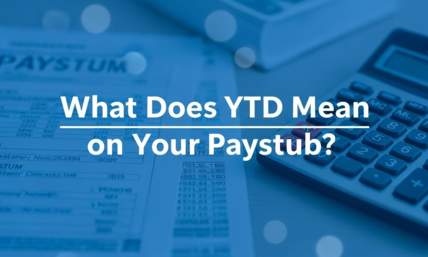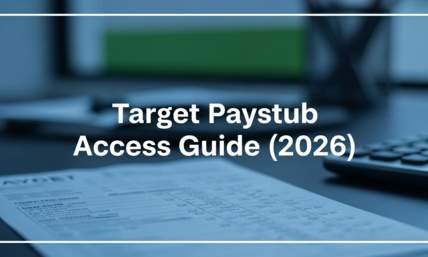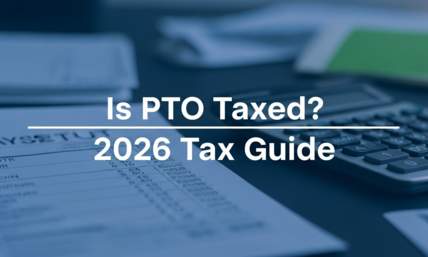The 5 Ways To Keep Track Of Your Businesses Income And Expenses
Most probably, you’ve just started your business, and it’s a rather decently small one with one or two employees. It’s been running well for the past few months. You have a lot of sales, and you’re generating a lot of positive reviews. But you feel that something funny's going on: you’re not earning that much.
If you think that way, guessing what’s causing the problem will only get your business in trouble. To discover what’s going on and how you can fix it, keep track of your business income and expenses. If you haven’t done that ever since you started, you may want to take down some notes.
1. Open a business bank account
Most businesses start small and simple. They’re often one-person companies, and you’ll often find that the entrepreneurs behind them use their personal bank accounts as their companies’ accounts as well. You might be running your business like that as well.
There’s nothing wrong with that. However, when your business starts to grow, you’ll be surprised how messy dealing and tracking your personal and business expenses can be if you only put everything under a single account. Because of that, it’s highly recommended that you create a separate one for your company. Aside from allowing you to separate your personal and business funds so you can easily track them, having a dedicated business account can also help you when it comes to taxes.
Having a business bank account can allow your bank to track income and expenses. With one, you get a free report every month on your withdrawals, deposits, and transfers.
Also read: What are the most easy business processes to automate right now?

2. Get a business credit card
Another advantage of opening a business bank account is a business credit card, which is optional, of course. Having a business credit card will make it easy for you to separate your personal expenses. For example, you can use your regular credit card for lunch you’ll have with the kids, and you can use your business credit card for lunch you’ll have with your clients.
Aside from that, a business card may come with multiple rewards and perks you can’t have in a personal credit card – not to mention that they have higher spending limits. Moreover, by using your business credit card, all your business expenses are conveniently listed and recorded. Some banks can allow you to import those expenditure lists into your accounting software, hence tracking them becomes more manageable and convenient.
Having a business credit card is better than having a business account alone. The reports they generate are often more detailed than a simple list of withdrawals, deposits, and transfers.
Also read: What Tools Can You Use to Streamline Your Business Operations?
3. Choose which accounting method is suitable for your business
Once you have a business bank account and a business credit card, you can start thinking of how you can formally track your business income and expenses. For you to do that, you must decide what type of accounting method you’ll use. There are two of them: cash and accrual.
In the cash-basis accounting method, you’ll only record your expenses and incomes whenever actual money goes in or out in your account. In the accrual-basis accounting method, you’ll record expenditures and revenues when you receive bills or send invoices, even if you haven’t sent or received the money yet.
Between the two bookkeeping methods, the IRS recommends accrual accounting, as it’s more accurate. However, each has both pros and cons you may want to know before you choose one.
Also read: 8 Signs Your Invoicing Isn’t Right

Cash basis accounting
One of the reasons some businesses choose cash-basis accounting is that it’s simple to do. Having a business bank account can get you covered with your bookkeeping, as every transaction made with your account is recorded.
However, note that the IRS doesn’t allow every business to use this kind of accounting method to track the expenses of a business. If your business involves inventory management, earns more than USD$5 million a year, and is listed publicly, you can’t use cash-basis accounting.
Take note that if you don’t want to have trouble with your financial statements in the future, you should follow the generally accepted accounting principles (GAAP). Unfortunately, cash-basis accounting doesn’t wholly follow those principles. Also, aside from issues that may come from the IRS, cash-basis will prevent you from determining your business’s current trends and performance.
Say that you may have completed work for 50 customers for this month, but the contracts you have allows your clients to pay whenever they want as long as they won’t exceed six months. If they don’t pay immediately, you wouldn’t know in your accounting that this month is the best month for your business, which can be a significant trend you can capitalize on next year.
Accrual basis accounting
Whenever you provide your service or sell your product, you should immediately record them as income with accrual-basis accounting. If your clients or customers haven’t paid their due for your service or product, the amount due is considered accounts receivable (AR), which are also labelled as current assets in your books.
The same goes with your expenditures—they’re labelled as accrued expenses or liabilities. The most common forms of business accrued expenses are employee salaries and utility bills.
Opposite to cash-basis, you can have a clearer view of the current state of your business and manage your finances better. An accrual balance sheet allows you to know if your business is profitable or incurring losses in real-time. Your bank’s balance may not reflect those winnings and losses, but you can easily take action faster if there’s a problem.
The biggest issue you may have with accrual accounting is you may forget about your immediate cash flow. For example, if you have many unpaid invoices and all your expenses get through your account, you may end up with a negative balance, and your bank may attempt to close your account.

Of course, some banks offer protection in this kind of scenario, but the main thing you should do is to prevent this from happening in the first place. Due to this reason, there’s nothing wrong with doing both accrual and cash accounting. Accrual takes care of financial documents and taxation, as well as helps you with business decisions, while cash accounting allows you to prevent putting your balance in the red.
Another thing you should take note of is that accrual accounting can make the computation of taxes a bit problematic. For example, you have recorded accounts receivable by December, and its payment came in March. Even if you didn’t have the money yet for that invoice, it’s already part of your tax computation for the previous year.
4. Get accounting software
While the feeling of writing on an actual spreadsheet can be cathartic, know that you should use accounting software instead. One, it’s very efficient. Two, a good accounting program can let you simplify your tax filing. Three, you can protect yourself from audits. And four, some programs provide reporting and analytics, which can help when you need to make decisions and have financial data to back them up.
However, accounting software isn’t all rainbows and sunshine as it also has its own set of disadvantages. Primarily, it’s an additional cost. Know that accounting software is expensive for a startup. It’ll be much better for you to use a spreadsheet program instead, some of which are even free. It may not be as robust as an accounting app, but it’s better than doing your bookkeeping on actual books.
Another problem you may encounter with accounting software is that it can be complex. Typically, those programs are designed for accountants. If you have little idea about financial jargon and processes, learning how to operate an accounting program can be challenging. Of course, you can opt to use simpler ones, but most of them won’t give you complete control of what you’re doing.
Also read: Use A Customised Invoice For Your Business

5. Keep a paper trail
Going digital is indeed the best move if you want to track your business income and expenses. However, you should never forget to keep a paper trail. If possible, make sure to scan or take pictures of them to serve as backup digital copies.
Note that it’s advisable to keep all documents related to your financial transactions for three to seven years. Be sure to keep all receipts, bills, and invoices, and always have one copy. The advantage of keeping them is that when something terrible happens to your digital records, you have a way to rebuild all your records through all those documents.
Those documents can also help you with customers who plan to dispute your transactions with them through a chargeback. The receipts and invoices you have can invalidate their claims since these documents serve as solid proof of the transactions’ validity, quality, and amount.
Moreover, those documents can help you with your business taxes. Having them allows you to have proof, making it valid for you to write off some of your expenses. Remember that you need every reduction in taxes you can get if you have a small business, since you’ll be in a higher tax bracket.
Also read: How to Create an Employee Compensation Plan that is Effective
Conclusion
Keeping track of your business income and expenses is vital to ensure that your business’s financial health is sound. Even if you’re capable of hiring an accountant to do all this work for you, don’t pass up the opportunity to get up close and personal with your cash flow and financial records (including pay stubs). After all, being familiar with them can help you better understand how to manage your company without suddenly encountering bank and tax problems.















